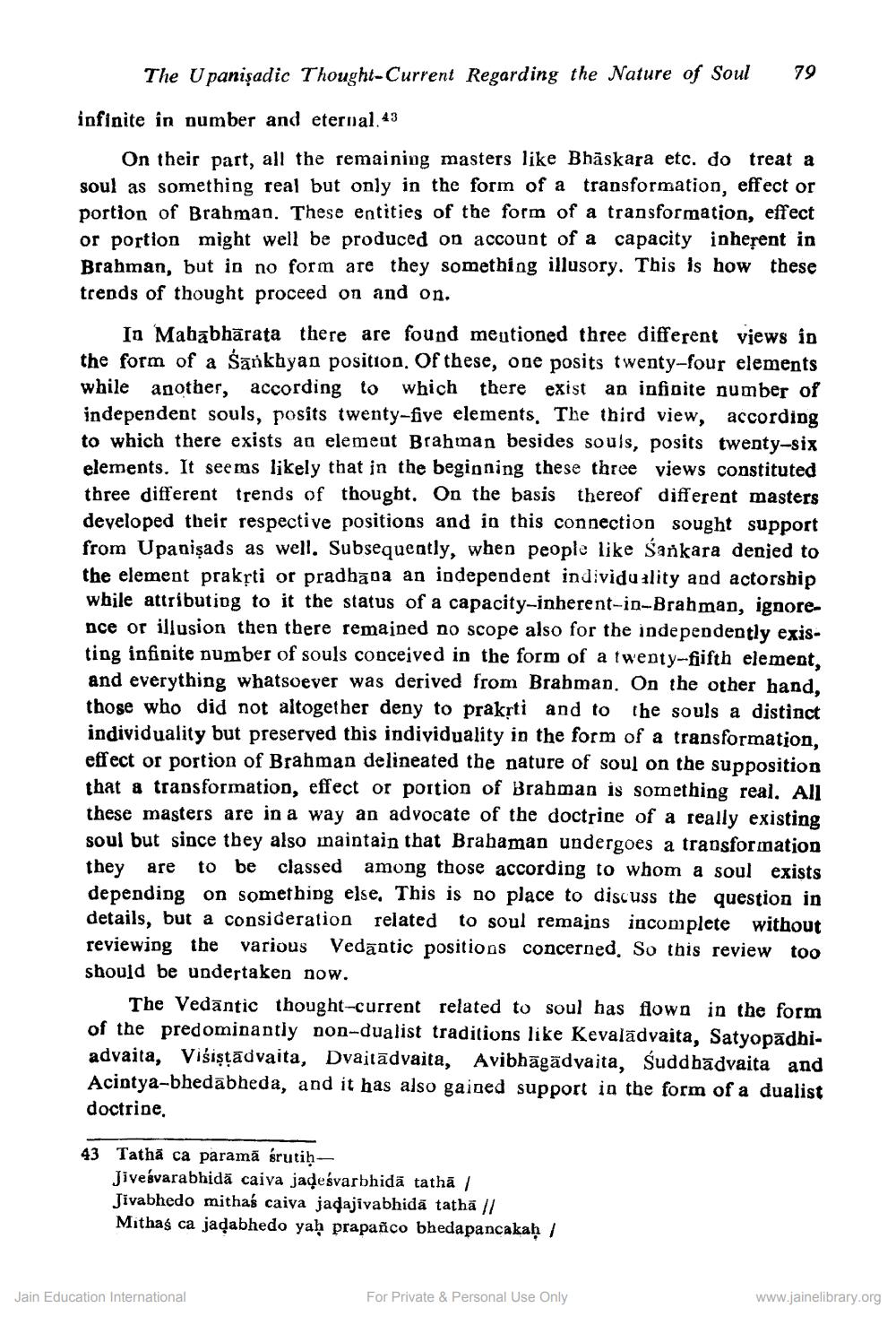________________
The Upanişadic Thought-Current Regarding the Nature of Soul
79
infinite in number and eternal.43
On their part, all the remaining masters like Bhaskara etc. do treat a soul as something real but only in the form of a transformation, effect or portion of Brahman. These entities of the form of a transformation, effect or portion might well be produced on account of a capacity inherent in Brahman, but in no form are they something illusory. This is how these trends of thought proceed on and on.
In Mababhārata there are found mentioned three different views in the form of a śānkhyan position. Of these, one posits twenty-four elements while another, according to which there exist an infinite number of independent souls, posits twenty-five elements. The third view, according to which there exists an elemeat Brahman besides souls, posits twenty-six elements. It seems likely that in the beginning these three views constituted three different trends of thought. On the basis thereof different masters developed their respective positions and in this connection sought support from Upanişads as well. Subsequently, when people like Sankara denjed to the element prakrti or pradhāna an independent individuality and actorship while attributing to it the status of a capacity-inherent-in-Brahman, ignorence or illusion then there remained no scope also for the independently existing infinite number of souls conceived in the form of a twenty-fifth element, and everything whatsoever was derived from Brabman. On the other hand, those who did not altogether deny to prakrti and to the souls a distinct individuality but preserved this individuality in the form of a transformation, effect or portion of Brahman delineated the nature of soul on the supposition that a transformation, effect or portion of Brahman is something real. All these masters are in a way an advocate of the doctrine of a really existing soul but since they also maintain that Brahaman undergoes a transformation they are to be classed among those according to whom a soul exists depending on something else. This is no place to discuss the question in details, but a consideration related to soul remains incomplete without reviewing the various Vedāntic positions concerned. So this review too should be undertaken now.
The Vedāntic thought-current related to soul has flown in the form of the predominantly non-dualist traditions like Kevaladvaita, Satyopādhiadvaita, Višiştādvaita, Dvaitādvaita, Avibhāgädyaita, Suddbädvaita and Acintya-bhedabheda, and it has also gained support in the form of a dualist doctrine
43 Tathă ca paramā śrutiḥ
Jivesvarabhidä сaiva jadeśvarbhidä tathā 1 Jivabhedo mithaś caiva jadajivabhida tatha // Mithaś ca jadabhedo yah prapanco bhedapancakah /
Jain Education International
For Private & Personal Use Only
www.jainelibrary.org




